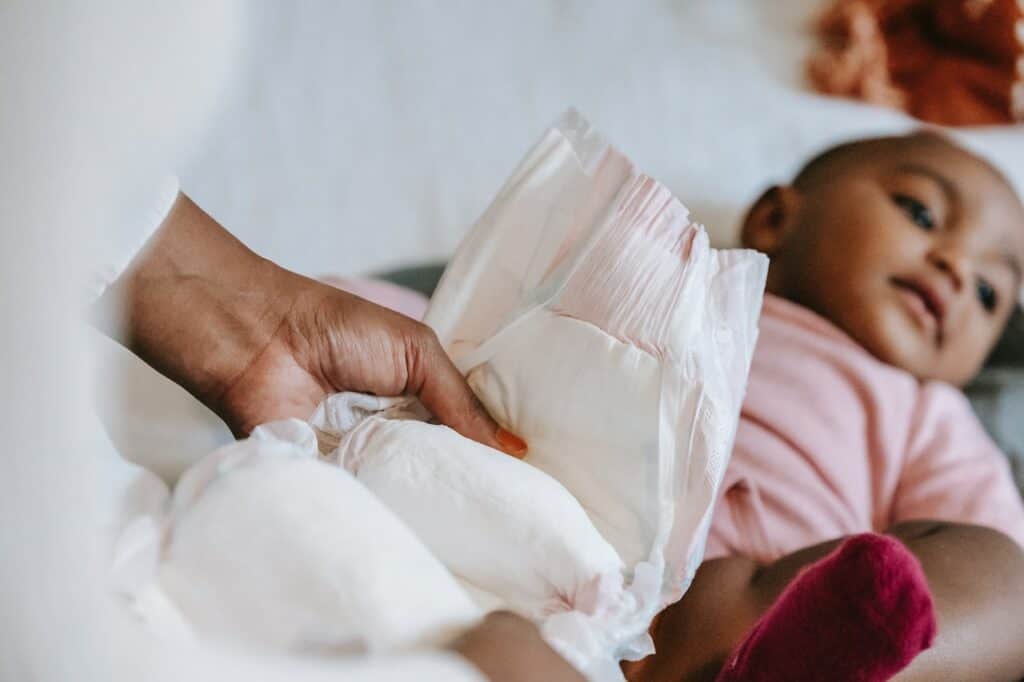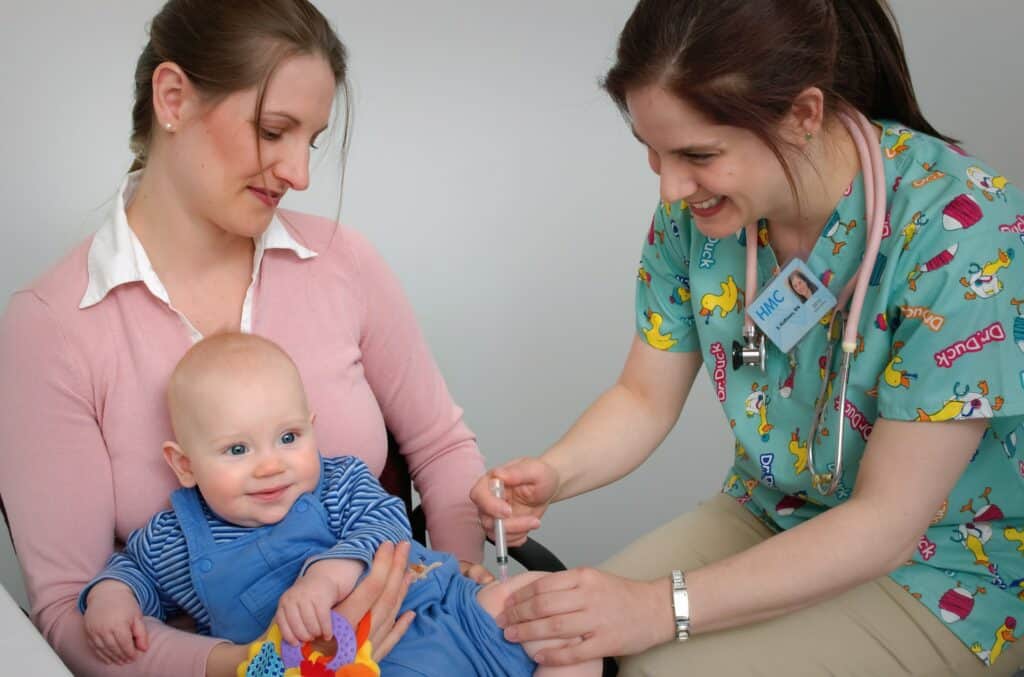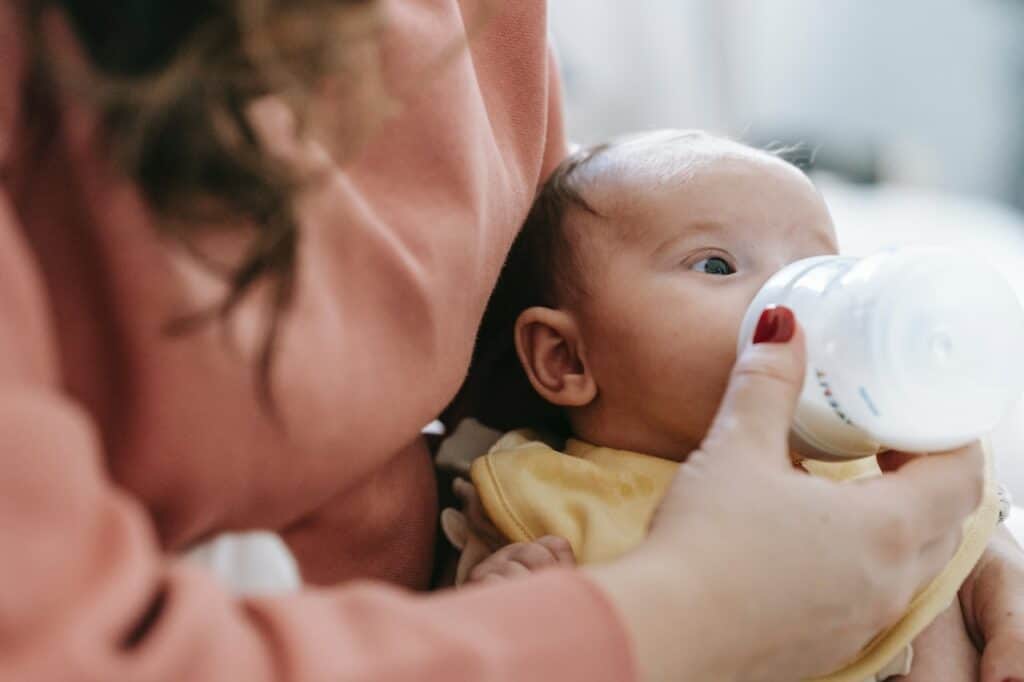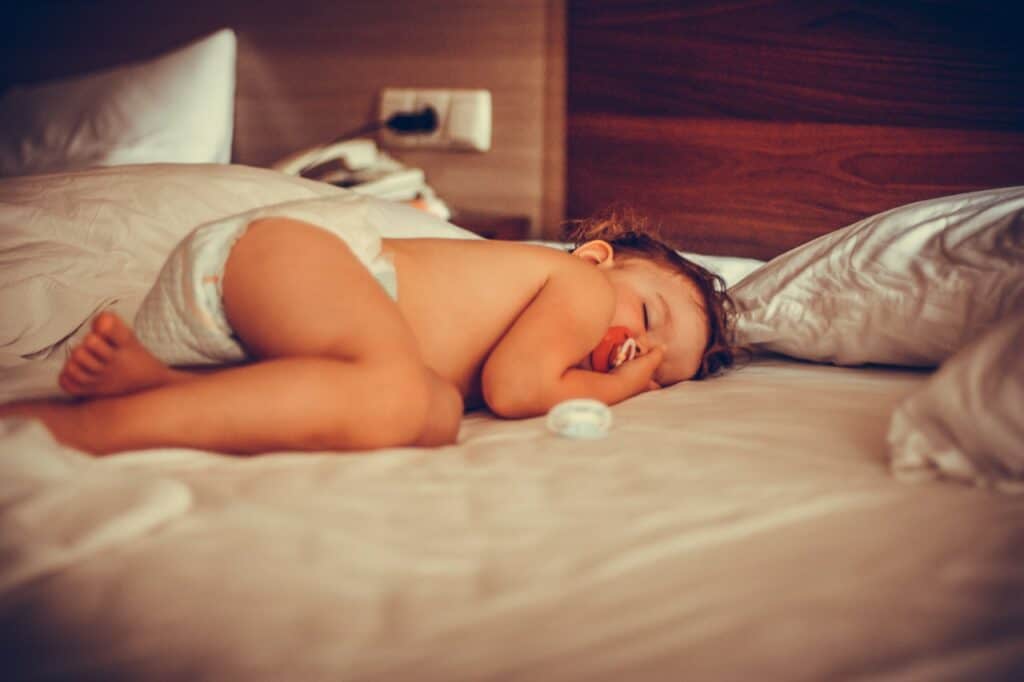When it comes to parenting, dealing with poop is an inevitable part of the job. And while it’s normal for babies to poop frequently, it can be a bit more challenging when they do it while sleeping. Not only can it disrupt their sleep patterns, but it can also be uncomfortable for them and lead to diaper rash.
Understanding why babies poop while sleeping can help you better deal with the situation. In some cases, it may be due to their feeding habits or diet, while in others it may be related to their sleep patterns and training. Whatever the reason, there are steps you can take to handle the situation and prevent it from happening in the future.
Key Takeaways
- Understanding why babies poop while sleeping can help you better deal with the situation.
- Dealing with night-time poop involves being prepared, staying calm, and maintaining a clean sleep environment.
- Preventing diaper rash and consulting a pediatrician when necessary are important steps in caring for your baby’s health.
Understanding Baby’s Poop
Babies’ poop can vary in color, texture, and frequency depending on their age, diet, and health. Understanding what’s normal and what’s not can help parents identify potential health issues early on.
Color
Newborns’ poop is typically dark green or black, but it can transition to yellow or brown within a few days. Breastfed babies’ poop is usually mustard yellow, while formula-fed babies’ poop is often tan or yellow. Red or black poop can indicate bleeding in the digestive tract and should be evaluated by a doctor.
Texture
Babies’ poop can range from runny to firm, and it can contain small amounts of mucus or undigested food. Hard, pellet-like poop can indicate constipation, while watery poop can indicate diarrhea. If a baby has diarrhea for more than a day or two, it’s important to contact a doctor.
Frequency
Babies’ poop frequency can vary greatly. Some babies poop after every feeding, while others may go several days without pooping. As long as the baby is producing soft, comfortable stools, there is usually no cause for concern.
Diaper Change
It’s important to change a baby’s diaper promptly after they poop to prevent diaper rash and infection. Wiping from front to back can help prevent the spread of bacteria. If the baby has a diaper rash, using a diaper cream can help soothe the skin.
Solids
As babies transition to solid foods, their poop may become more solid and have a stronger odor. It’s important to introduce new foods gradually and watch for any signs of food allergies or intolerances. If a baby has a reaction to a particular food, it’s important to avoid it in the future.
Conclusion
Understanding what’s normal and what’s not when it comes to baby poop can help parents identify potential health issues early on. If a baby’s poop is consistently abnormal, it’s important to contact a doctor for evaluation.
Why Baby Poops While Sleeping
It is not uncommon for babies to poop while sleeping, and there are several reasons why this may happen. One of the main reasons is the developing digestive system of the baby. Babies have an immature digestive system, which means that they are not able to digest food as efficiently as adults. As a result, they may have frequent bowel movements, including during sleep.
Another reason why babies may poop while sleeping is due to their feeding habits. Babies who are breastfed may have more frequent bowel movements than those who are formula-fed. Breast milk is easier to digest, and as a result, babies may pass stools more often. Additionally, babies who are going through a growth spurt may have more bowel movements, including during sleep.
Reactions to specific foods can also cause babies to poop while sleeping. Some babies may be sensitive to certain foods, such as dairy products or soy, and this can cause them to have loose stools or diarrhea. If a baby has a food allergy or intolerance, it is important to identify the trigger food and eliminate it from their diet.
In conclusion, there are several reasons why babies may poop while sleeping, including their developing digestive system, feeding habits, reactions to specific foods, and growth spurts. It is important for parents to monitor their baby’s bowel movements and consult with a healthcare provider if they have any concerns.
Dealing with Night-Time Poop

It’s not uncommon for babies to poop while sleeping, and it can be a messy and smelly situation. However, with a few simple steps, you can handle it quickly and efficiently.
When dealing with night-time poop, the first step is to change the diaper as soon as possible. Leaving a dirty diaper on for too long can cause discomfort and irritation for the baby. Make sure to have all the necessary supplies on hand, including diapers, wipes, and diaper cream.
Start by gently wiping the baby’s bottom with a wipe. Use a clean wipe for each pass to avoid spreading bacteria. If the poop is particularly messy, you may need to use several wipes to get the area clean.
After cleaning the baby’s bottom, apply diaper cream to prevent diaper rash. Make sure to use a high-quality diaper cream that is safe for the baby’s delicate skin.
Once the baby is clean and comfortable, it’s time to put on a fresh diaper. Make sure to choose a diaper that fits well and is absorbent enough to prevent leaks. Regular diaper changes throughout the night can help prevent future incidents.
In summary, dealing with night-time poop requires a few simple steps: diaper change, wipes, diaper cream, clean, comfortable, high-quality diapers, and regular diaper changes. With these tips in mind, you can handle the situation confidently and efficiently.
Preventing Diaper Rash
Diaper rash is a common skin irritation that affects babies. It can be caused by many factors, including wetness, friction, and irritation from urine and stool. Preventing diaper rash is key to keeping your baby comfortable and healthy.
Here are some tips for preventing diaper rash:
-
Change diapers frequently: Frequent diaper changes help keep your baby’s skin dry and prevent irritation from urine and stool.
-
Use a diaper cream: Diaper creams can help protect your baby’s skin from moisture and irritation. Look for a cream that contains zinc oxide or petrolatum.
-
Avoid tight-fitting diapers: Tight-fitting diapers can cause friction and irritation, leading to diaper rash. Make sure your baby’s diaper is not too tight.
-
Use fragrance-free, gentle products: Fragrances and harsh chemicals can irritate your baby’s sensitive skin. Use fragrance-free, gentle products to clean your baby’s skin.
-
Allow air to circulate: Letting your baby’s skin breathe can help prevent diaper rash. Give your baby some diaper-free time each day to allow air to circulate around the diaper area.
-
Be aware of persistent diaper rash: If your baby has a persistent diaper rash that does not improve with home treatment, it may be a yeast infection. Consult your pediatrician for further evaluation and treatment.
By following these simple tips, you can help prevent diaper rash and keep your baby’s skin healthy and comfortable.
Also, read: Baking Powder for Diaper Rash
When to Consult a Pediatrician
If a baby poops while sleeping, it is usually not a cause for alarm. However, there are certain situations where consulting a pediatrician is necessary. Here are some scenarios where it is recommended to seek medical advice:

-
Infection: If the baby’s poop has an unusual color, consistency, or odor, it could indicate an infection. Additionally, if the baby has a fever, vomiting, or diarrhea, it could be a sign of an infection. In this case, it is important to consult a pediatrician for proper diagnosis and treatment.
-
Discomfort: If the baby seems uncomfortable or in pain when passing stool, it could be a sign of constipation or other digestive issues. In some cases, the baby may also have blood in their stool. If this is the case, it is recommended to consult a pediatrician for advice on how to relieve the baby’s discomfort.
-
Constipation: If the baby is experiencing constipation, it may be a sign of an underlying issue. A pediatrician can help diagnose the cause of the constipation and recommend appropriate treatment.
-
Dr. Arunima Agarwal: If the baby’s parents have a pediatrician they trust, such as Dr. Arunima Agarwal, it is always a good idea to consult them if there are any concerns about the baby’s health.
In general, if the baby’s poop seems abnormal or if the baby seems uncomfortable or in pain, it is recommended to consult a pediatrician for advice. A pediatrician can help diagnose any underlying issues and provide appropriate treatment.
Sleep Patterns and Training
Sleep patterns and training are essential for babies to develop healthy sleep habits. Sleep training is a method that helps babies learn to fall asleep on their own and sleep through the night. It involves teaching babies to self-soothe and not rely on external factors like feeding or rocking to fall asleep.
Babies have different sleep patterns, and it is essential to understand them to develop a sleep training plan. Newborns sleep for around 16-17 hours a day, and their sleep is divided into multiple naps and short periods of wakefulness. As they grow, their sleep patterns change, and they start sleeping for longer periods at night.
When babies poop during sleep, it can disrupt their sleep patterns and cause discomfort. It is essential to change their diaper promptly and soothe them back to sleep. However, it is not recommended to change their diaper every time they poop during sleep as it can disturb their sleep patterns and prevent them from self-soothing.
As babies grow, they develop control over their bowel movements, and they stop pooping at night. Most babies stop pooping at night between 6-12 months, but some may continue to poop at night until they are two years old. It is essential to be patient and continue with the sleep training plan to help babies develop healthy sleep habits.
In conclusion, sleep patterns and training are crucial for babies to develop healthy sleep habits. When babies poop during sleep, it is essential to change their diaper promptly and soothe them back to sleep. It is also important to be patient and continue with the sleep training plan to help babies develop healthy sleep habits.
Feeding Habits and Diet

A baby’s feeding habits and diet can have a significant impact on their bowel movements, including when they poop and how often. Establishing a routine for feeding times can help regulate a baby’s digestion and bowel movements, making it easier to predict when they may need a diaper change.
It’s important to ensure that a baby’s diet is balanced and includes all the necessary nutrients for their growth and development. Breast milk or formula should be the primary source of nutrition for babies under six months old. Introducing solid foods should be done gradually and in consultation with a pediatrician.
Certain foods may cause reactions in some babies, such as constipation or diarrhea. Keeping a food log can help identify any specific foods that may be causing issues and allow for adjustments to be made to the baby’s diet.
Overall, maintaining a healthy and balanced diet for a baby, along with regulating feeding times, can help prevent any discomfort or issues with bowel movements while sleeping.
Choosing the Right Diaper
Choosing the right diaper is crucial to prevent a baby from pooping while sleeping. There are various types of diapers available in the market, including cloth diapers and disposable diapers.
Cloth diapers are an eco-friendly option and can be reused multiple times. However, they may not be as absorbent as disposable diapers, and changing them frequently is necessary to avoid diaper rash. On the other hand, disposable diapers are more convenient and absorbent, but they contribute to environmental waste.
When selecting disposable diapers, it is essential to choose high-quality diapers that fit the baby well. High-quality diapers are more absorbent and can prevent leaks, reducing the risk of poop accidents. It is also crucial to choose the right size of diapers, as a loose or tight diaper can cause discomfort and leaks.
Wet wipes are also an essential part of diaper changing. It is crucial to use gentle and fragrance-free wipes to avoid irritation and diaper rash. After cleaning the baby’s bottom, applying diaper cream can help prevent diaper rash and soothe any existing irritation.
In summary, choosing the right diaper is crucial to prevent poop accidents while sleeping. High-quality disposable diapers that fit the baby well are a convenient option, while cloth diapers are an eco-friendly choice. Using gentle wet wipes and applying diaper cream can also help prevent diaper rash.
Maintaining a Clean Sleep Environment
When a baby poops while sleeping, it is essential to maintain a clean sleep environment to prevent any infections or discomfort. Here are a few tips on how to do it:

-
Clean the baby: Use a soft cloth and warm water to clean the baby’s bottom thoroughly. You can also use baby wipes, but make sure they are fragrance-free and gentle on the skin.
-
Change the bedding: Remove any soiled bedding, including the mattress cover, and replace it with clean ones. If the mattress is wet, you can use a waterproof mattress pad to protect it.
-
Use a sleep sack: A sleep sack is a wearable blanket that keeps the baby warm and comfortable while sleeping. It also helps to prevent the baby from getting tangled in loose blankets.
-
Wash the sleep sack: If the sleep sack is soiled, wash it immediately with baby-safe detergent and dry it on a low heat setting.
-
Use gentle soap: When washing the baby’s clothes and bedding, use a gentle soap that is free from harsh chemicals and fragrances. This will help to prevent any skin irritation.
By following these tips, parents can maintain a clean and comfortable sleep environment for their baby, even when accidents happen.
Related post: Browning Flour for Diaper Rash
Frequently Asked Questions
When should I change my baby’s diaper if they poop in their sleep?
It is recommended to change your baby’s diaper as soon as possible after they poop, even if it happens during sleep. Leaving a dirty diaper on for too long can cause skin irritation, rashes, and infections. However, if your baby is a heavy sleeper and changing their diaper may wake them up, it is okay to wait until they wake up naturally.
How often should I change my newborn’s diaper at night?
Newborns typically need to be changed every two to three hours, even during the night. It is important to keep their skin clean and dry to prevent diaper rash and other skin irritations.
Is it safe to let a baby sleep in a poopy diaper?
No, it is not safe to let a baby sleep in a poopy diaper. The bacteria from the poop can cause infections and other health issues. It is important to change your baby’s diaper as soon as possible after they poop, even if it happens during sleep.
Can a baby sleep through the night with a poopy diaper?
It is possible for a baby to sleep through the night with a poopy diaper, but it is not recommended. Leaving a dirty diaper on for too long can cause skin irritation, rashes, and infections. It is important to change your baby’s diaper as soon as possible after they poop, even if it happens during sleep.
What are the risks of leaving a baby in a poopy diaper overnight?
Leaving a baby in a poopy diaper overnight can cause skin irritation, rashes, and infections. The bacteria from the poop can also cause health issues. It is important to change your baby’s diaper as soon as possible after they poop, even if it happens during sleep.
Should I wake my baby if they poop in their sleep?
If your baby is a heavy sleeper and changing their diaper may wake them up, it is okay to wait until they wake up naturally. However, if your baby is prone to diaper rash or has sensitive skin, it is recommended to change their diaper as soon as possible after they poop, even if it happens during sleep.

Iesha is a loving mother of 2 beautiful children. She’s an active parent who enjoys indoor and outdoor adventures with her family. Her mission is to share practical and realistic parenting advice to help the parenting community becoming stronger.
